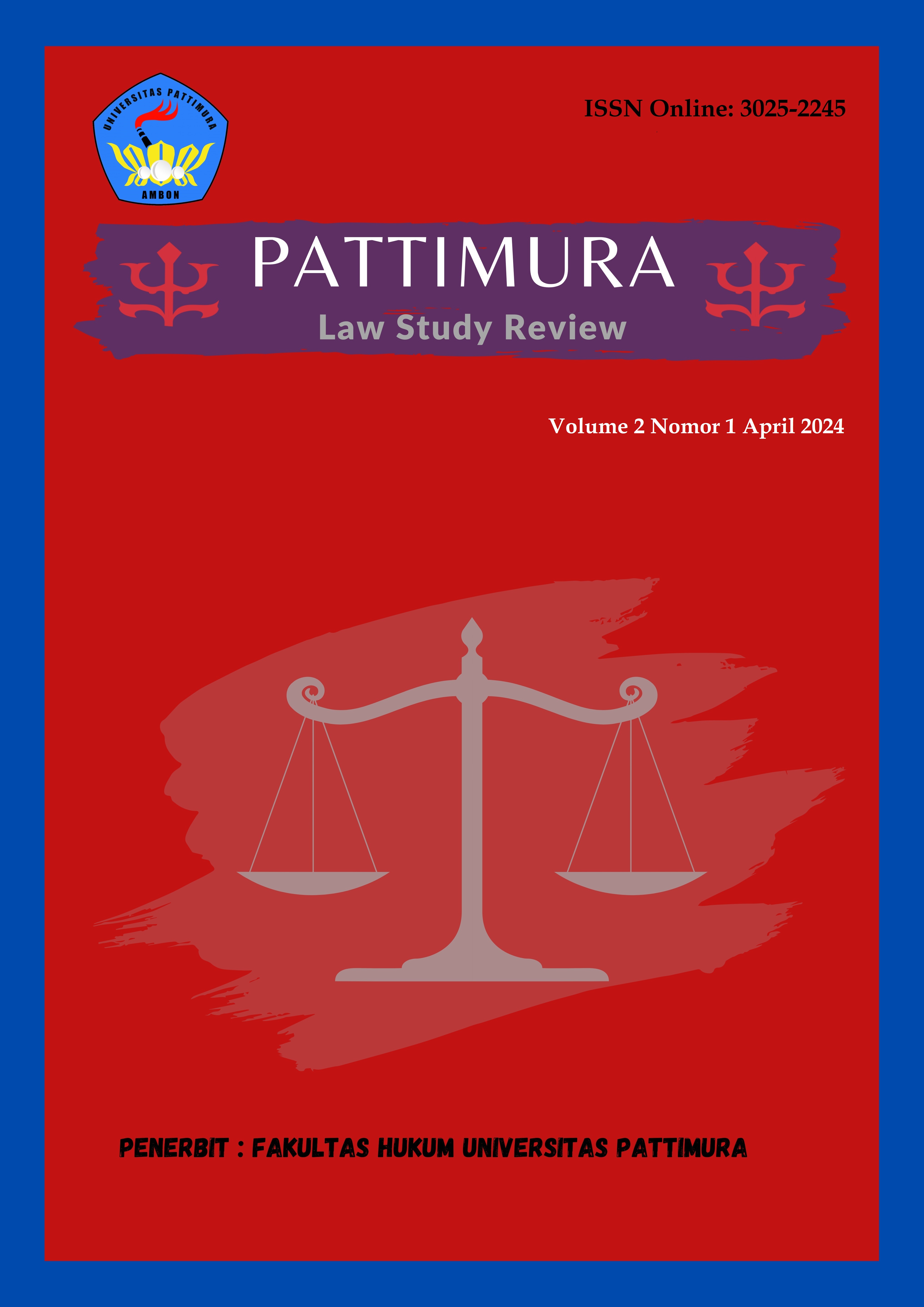Penerapan Sanksi Terhadap Pelaku Residivis Penyalahgunaan Narkotika Di Lembaga Pemasyarakatan
Abstract
ABSTRACT: Narcotics abuse is a crime and violation that threatens the safety, both physical and mental, of the user and also of the surrounding community socially. This narcotics abuse is not only carried out by narcotics abusers, but also by residents with prisoner status who are languishing in correctional institutions, thereby making prisoners entangled in the same cases. However, the deterrent effect of sanctions for this punishment is not considered to have a deterrent effect. In one of the narcotics cases committed by a drug recidivist, previously in 2018, the defendant with the initials MP was sentenced to 6 years in prison and languished behind iron bars. However, in 2021, precisely on January 17 2021, the defendant MP committed his crime again in a correctional institution. The aim of this research is to find out and analyze the application of sanctions against recidivist perpetrators of narcotics abuse in the Ambon Class IIA Correctional Institution and how efforts are made to control the circulation of narcotics in the Ambon Class IIA Correctional Institution. The research method used is empirical juridical research. The data sources used are primary data and secondary data. The technique for collecting legal materials is through interviews and then analyzed through descriptions using qualitative methods. The results of this research conclude that the application of sanctions to recidivists of criminal acts of narcotics abuse who distribute narcotics within prisons is by applying severe penalties to inmates as stated in Article 10 paragraph (3) of the Minister of Law and Human Rights Regulation Number 6 of 2013 regarding the Rules of Prisons and Detention Centers, which include being put in solitary confinement for 6 (six) days and can be extended for 2 (two) times 6 (six) days and not getting remission, leave to visit family, conditional leave, assimilation, leave before release, and parole within the current year and must be recorded in the guidance card, efforts to overcome the recidivism of criminal acts of narcotics abuse can be carried out through preventive and repressive efforts.
Downloads
References
Muhammad Amin Imran, Hubungan Fungsional Badan Narkotika Nasional Dengan LembagaPemasyarakatan Dalam Penanganan Narkotika Di Lembaga Pemasyarakatan, Jurnal Hukum, Kementrian Hukum dan HAM Lapas Mataram, Vol 1 No 02 Agustus 2013
Buku
Ekaputra, A. K. dan M. Sistem Pidana Di Dalam KUHP Dan Pengaturannya Menurut Konsep KUHP Baru, USUPress, Sumatra Utara, 2010
Hunt, The sociological Movement in Low, (London: Billing & Son, 1978)
Siswantoro Sunarso, Penegakan Hukum dalam kajian Sosiologis, Jakarta: Raja Grafindo Persada, 2014
Suparni Niniek. Eksistensi Pidana Denda dalam Sistem Pidana dan Pemidanaan,sinar graf, Jakarta, 2007
Lain-lain
Hasil wawancara dengan Bapak Fridi Kaimudin Selaku pengelola Pembinaan Kepribadian Lapas Kelas IIA Ambon pada hari senin tanggal 18 Desember 2023.
Copyright (c) 2024 Riska Madaul, Reimon Supusepa, Jetty Martje Patty (Author)

This work is licensed under a Creative Commons Attribution-NonCommercial 4.0 International License.
Authors who publish their manuscripts in this Journal agree to the following conditions:
- The copyright in each article belongs to the author, as well as the right to patent.
- Authors are able to enter into separate, additional contractual arrangements for the non-exclusive distribution of the journal's published version of the work (e.g., post it to an institutional repository or publish it in a book), with an acknowledgment of its initial publication in this journal.
- Authors are permitted and encouraged to post their work online (e.g., in institutional repositories or on their website) prior to and during the submission process, as it can lead to productive exchanges, as well as earlier and greater citation of published work.
- Authors have the right to self-archiving of the article (Author Self-Archiving Policy)













